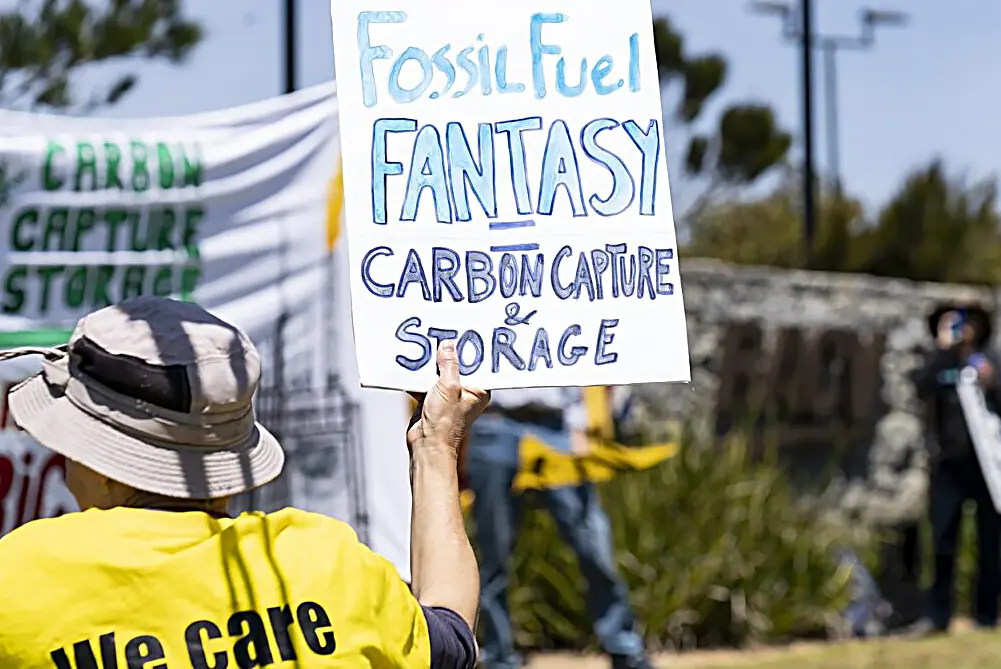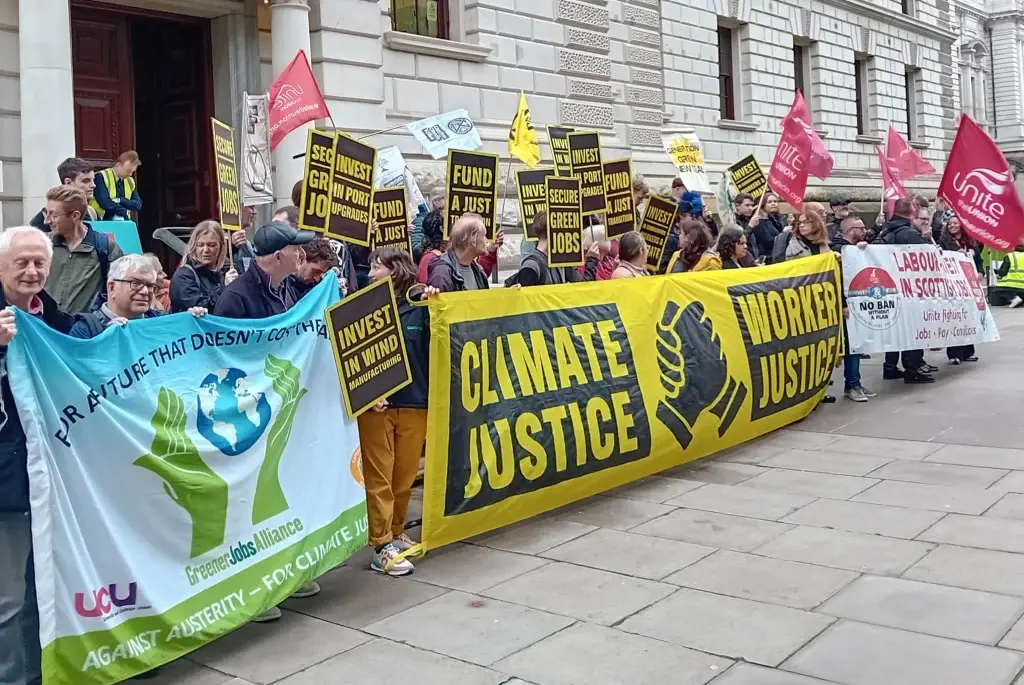Labour and CCS: another response to the ‘dirty energytechno fix’

Our original compilation of responses to the ‘dirty energy technofix‘ article by Les Levidow and Simon Pirani included some comments from CACCTU Secretary, Ellen Robottom. Ellen has been extensively involved in the campaign for a genuine (as opposed to green washed) energy transition, one that protects workers, public and planet alike.
On 9th November she hosted an online ‘energy strategy day’ which included the contribution from Paul Atkin which we published here and is planning a follow-up in person event in Leeds for 1st February (details forthcoming).
Here, we are pleased to host a more extensive response from Ellen as a further contribution to the ongoing CCS debate.
I would like to comment further on the GJA website debate so far on CCS. Some of the selected quotes could give the impression that CCS is only a problem if applied to the power sector, but the use of CCS to produce fossil (blue) hydrogen for use in high temperature industrial applications is potentially equally if not more problematic. Firstly, producing blue hydrogen can have a GHG emissions footprint considerably higher than just burning gas, or even coal, when all the extraction, liquefaction and transportation emissions are taken into account.
Secondly, what we are rarely told is that hydrogen itself is a potent indirect greenhouse gas (due to the chemical reactions that occur when it is burned in air which increase concentrations of ozone, methane and nitrous oxides in the atmosphere), with a global warming potential (GWP) relative to carbon dioxide of 28 (+18, -11) over 20 years or 10 (+7, -4) over 100 years. Being a very small molecule, it is far more likely to leak than methane (which our own noses tell us is leaky in itself).
Thirdly, whilst it is true that a few industries, notably cement (which contributes a large chunk of global emissions), have CO2 as a by-product intrinsic to the process and may therefore need CCS, the majority of gas use in industry is for very high temperature processes in things like glass, ceramics, chemicals and refining – and research is quite advanced on full electrification for these applications. If the UK goes down this pathway for much of its foundation industries, it could firstly mean that GHG pollution becomes worse due to substitution of natural gas with blue hydrogen, and second that UK industries could actually lose out as companies based in other countries move to electrification.
For cement, onsite CCS would seem to be better than piping the CO2 to undersea storage in “clusters”, which we know is highly unlikely to work based on the very much smaller-scale projects like Sleipner and Snohvit that have already thrown up problems. But more fundamentally, we need to be looking at reducing demand for concrete by stopping the construction of pointless shopping centres and the like, renovating rather than demolishing, developing alternative construction materials, and recycling what we have.
Can I also suggest publishing the link [below] to the basic introduction to CCS and hydrogen intended to get campaigners and activists up to speed with what we’re talking about. It also serves to demolish some myths by pointing out facts such as that the overwhelming majority of CCS in the world is pre-combustion CCS in industry, whilst there are only two examples of power CCS in the world and two of undersea storage – none of which works as planned. Most CCS for enhanced oil recovery is not from either power or industry but from natural underground sources. So the idea that any of this is proven is an outright lie. I believe it is vital that people have these basic facts.
Ellen Robottom
Secretary, Campaign Against Climate Change Trade Union group
Links to important information
- Ellen’s simple introduction to CCS and associated issues: CCS and H2 basic briefing
- Carbon Tracker report on blue hydrogen: Carbon Tracker: Kind of Blue
- Carbon Tracker report on the potential emissions of the proposed Peterhead Power Station with CCS: The Real Emissions of Peterhead
- A good paper on the risks of undersea storage: Deep Trouble: The risks of offshore carbon capture and storage
The Labour government’s dirty energy technofix must be contested and replaced
By Les Levidow and Simon Pirani
Labour’s Climate Strategy – strengths and weaknesses
By Paul Atkin
Join the debate
Send us your contribution to the debate. We will contact you about using it here on our News & Debate page.



